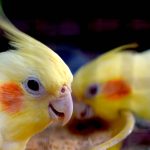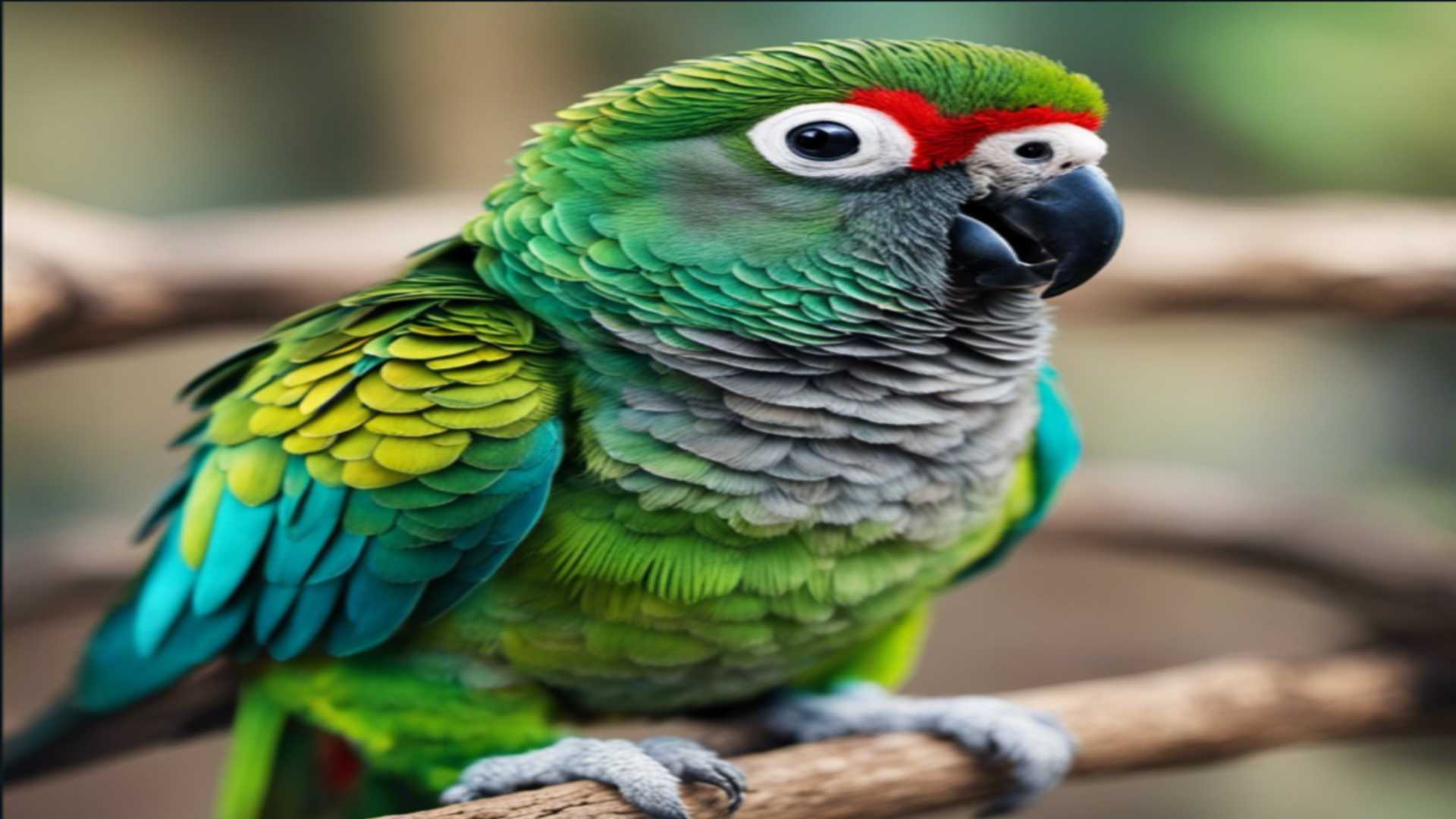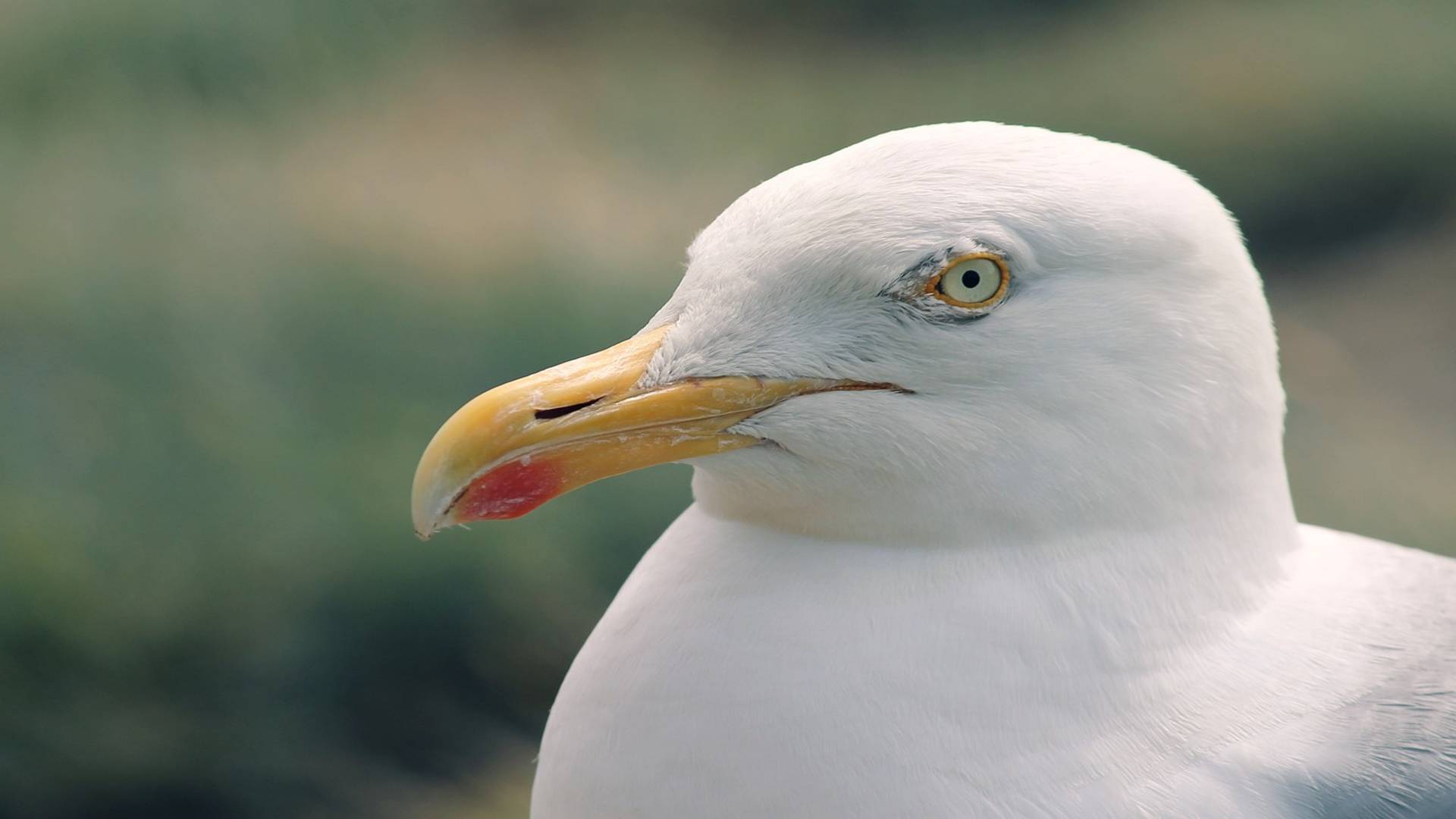Cockatiels are one of the most popular pet birds in the world. They are known for their friendly personalities and beautiful plumage. They are also known to lay infertile eggs, so you might have wondered why cockatiels sit on infertile eggs.
In this article, we’ll explore the reasons why cockatiels sit on infertile eggs, as well as what you can do if you find your cockatiel sitting on an infertile egg.
Let’s get started!
What to do when a cockatiel lays an unfertilized egg?
When a cockatiel lays an unfertilized egg, it is important to take certain steps to prevent further egg laying and ensure the bird’s health. Here is what you should do based on the search results:
Steps to Take:
- Remove the Egg: If your female cockatiel has laid an unfertilized egg, remove it from the cage to prevent her from continuously laying more eggs15.
- Replace with Fake Egg: Replace the real egg with a fake one or boil/freeze it before returning it to the female cockatiel25. This can help prevent her from laying more eggs.
- Prevent Nesting: Avoid providing nesting materials or encouraging nesting behavior by removing any objects that could stimulate egg-laying5.
- Provide Attention and Toys: Spend more time with your cockatiel and offer stimulating toys to keep her occupied and prevent self-stimulation that leads to egg-laying5.
- Ensure Calcium Intake: Ensure your cockatiel has access to calcium sources like cuttlefish bone to prevent calcium deficiency related to egg laying4.
- Consult a Vet: If you have concerns about your cockatiel’s health or behavior, consult a veterinarian for guidance on proper care and nutrition2.
How to tell if a cockatiel egg is fertile?
To determine whether a cockatiel egg is fertile, experienced breeders typically perform a process called candling. This involves holding an illuminated source against the eggshell to observe internal structures without breaking the egg. According to information from various sources:
- After approximately five days of incubation, a fertile egg should show a network of blood vessels within its contents and may display a heartbeat when viewed through candling3.
- In contrast, an infertile egg will appear clear inside with only the yolk and air cell visible3.
- Additionally, fertile eggs tend to have a stark white appearance, whereas infertile ones might exhibit a faint pinkish hue3.
Candling allows breeders to assess the developmental stage of the embryo and identify potential issues that could affect hatch success. It does not replace proper care and monitoring by a qualified avian veterinarian.
Do cockatiels lay unfertilized eggs?
Yes, cockatiels do lay unfertilized eggs. This behavior is a natural instinct among female cockatiels, even if they do not have a mate. They may sit on these eggs, called “dummy eggs,” to fulfill their nesting instincts. Providing proper care and a stimulating environment can help discourage this behavior.
Why are my cockatiel eggs infertile?
There are a few reasons why your cockatiel’s eggs may be infertile. The most common reason is simply that the bird is too young to produce fertile eggs. Cockatiels typically reach sexual maturity at around one year of age, so if your bird is younger than that, its eggs are likely to be infertile.
Some of the most common reasons we’ve seen for cockatiel infertility include:
1. Poor diet
A lack of vitamins, minerals, and other essential nutrients can lead to infertility in cockatiels. Make sure your bird is getting a well-rounded diet that includes a variety of fresh fruits and vegetables, as well as high-quality pellet food.
2. Lack of calcium
A lack of calcium is one of the most common causes of infertility in cockatiels. Make sure your bird has a cuttlebone or other source of calcium available at all times. In fact, calcium is an essential nutrient for all birds, not just cockatiels.
3. Stress
Like humans, birds can also experience infertility due to stress. If your cockatiel lives in a stressful environment, it may have difficulty producing fertile eggs.
Excessive stress can lead to a variety of health problems in birds, including infertility. Try to keep your cockatiel’s environment as calm and stress-free as possible.
In a recent article, I wrote about the top reasons that make cockatiels scared as well as what makes them feel safe. I go into more detail about each of these causes. You can read that article here.
4. Age
As cockatiels get older, they may have difficulty producing fertile eggs. This is especially true for birds that are more than ten years old. That being said, young cockatiels can also produce infertile eggs due to reproduction inexperience. That’s why it is very important to know the age of your cockatiel before breeding.
5. Gender
Another common reason for cockatiel infertility is that the bird is of the wrong gender. Cockatiels must be paired with a mate of the opposite gender in order to produce fertile eggs. If your cockatiel is not paired with a mate, its eggs will likely be infertile.
If you don’t know how to check the gender of your cockatiel, you can watch this video to learn more.
6. Hybridization
Cockatiels that are hybrids ( crosses between two different species of cockatiel) often have difficulty producing fertile eggs. This is because the two species of cockatiel have different DNA, which can cause problems with fertilization.
How many infertile eggs can a cockatiel lay?
There is no set number of infertile eggs that a cockatiel can lay. Some birds may only lay one or two, while others may lay dozens. The number of infertile eggs a cockatiel lays is usually directly related to the bird’s age and reproductive experience, as well as the food they are fed.
So, don’t be too discouraged if your cockatiel keeps laying infertile eggs throughout the breeding season. It can take a while for a cockatiel to perfect its reproduction skills.
As long as they have none of the issues mentioned earlier and are with a mate of the opposite sex, the likelihood is that they haven’t mated long enough or frequently enough for the eggs to be fertile.
How to tell if a cockatiel egg is infertile?
It can be difficult to tell if a cockatiel egg is infertile, but there are a few signs you can look for.
- Check the eggshell for any cracks or discoloration. If the eggshell is cracked or discolored, it is likely infertile.
- Examine the egg closely and see if there is any movement inside. Fertile eggs will usually have some movement, while infertile eggs will be still.
- Use a candle. If you candle the egg (hold it up to a light source) and see no veins or blood vessels, the egg is likely infertile.
Cockatiel egg candling
Cockatiel egg candling is a process used to determine the fertility of a cockatiel’s eggs. It involves holding the egg up to a light source and examining it for any veins or blood vessels. If there are no veins or blood vessels visible, then the egg is likely infertile.
Candling can be done with either natural sunlight or an artificial light source, such as a candle or candling light. Candling lights are available for purchase online and can be used to make the process easier.
CLICK HERE to check the price of a candling light on Amazon.com
How long should you let a cockatiel sit on unfertilized eggs?
It is generally recommended that you let a cockatiel sit on its eggs for about 18 days before checking to see if they are fertile.
Cockatiels are known for being good parents, but they will only sit on unfertilized eggs for a certain amount of time before they give up.
Once the cockatiel has given up on the eggs, it will stop sitting on them and may even start to eat them.
This is why it is important to remove any unfertilized eggs from the nest as soon as possible. If you wait too long, the cockatiel may start to see them as food instead of potential offspring.
What to do with infertile cockatiel eggs?
If you find that your cockatiel has laid an infertile egg, you should wait a few days to see if the bird will abandon it on its own. If the cockatiel does not abandon the egg after a few days, you will need to remove it from the nest yourself.
The last option is to incubate the egg yourself. This is only recommended if you have experience incubating eggs and know how to do it properly.
Cockatiel eggs not hatching after 21 days: What do I do?
If your cockatiel’s eggs have not hatched 21 days after being laid, it is likely that they are infertile.
Before you give up hope, though, there are a few things you can do to give them a fighting chance.
- First, make sure that the eggs are at the correct temperature. They should be between 99 and 102 degrees Fahrenheit. (37.5°C – 38.8C)
- Second, Use your candlelight to check and see if there is any movement inside the eggs.
- Third, check to see if the eggs have been turned enough. They should be turned in at least three times a day.
Once you’ve completed this checklist and the eggs still haven’t hatched, it’s probably best to remove them from the nest and start over.
Cockatiel egg hatching time
Cockatiel eggs typically take 18-21 days to hatch. The exact hatching time can vary depending on the temperature and humidity of the environment, as well as how often the eggs are turned.
To ensure that your cockatiel’s eggs hatch successfully, it is important to keep the temperature and humidity at optimal levels. The ideal temperature for incubating cockatiel eggs is between 99 and 102 degrees Fahrenheit (37.5°C – 38.8C). The humidity should be kept between 40-50%.
It is also important to turn the eggs at least three times a day to ensure that they develop properly.
Do male cockatiels sit on eggs?
The most common pattern is for the male cockatiel to take turns sitting on the eggs with the female. Usually, the male will sit on the egg during the day, and the female will sit on them at night.
However, some male cockatiels may not take part in the incubation process at all. This is usually due to a lack of experience or an unwillingness to take part in the process. If this is the case, it is important to make sure that the female cockatiel is getting enough rest, as this can affect the fertility of the eggs.
Do cockatiels know if their eggs are fertile?
Cockatiels are intelligent birds and can often tell whether their eggs are fertile. They may display certain behaviors such as increased vocalizations, more frequent nest visits, or even egg turning that indicate they know the eggs are fertile.
Of course, the only way to be sure that the eggs are fertile is to candle them and check for signs of development.
Will a cockatiel sit on unfertilized eggs?
A cockatiel may sit on unfertilized eggs, but it is not recommended. Unfertilized eggs will not develop, and the bird may become stressed from sitting on them for extended periods of time.
Also, if the bird does not abandon the egg after a few days, it is important to remove it from the nest yourself. This will help prevent any potential health issues that could arise from the bird sitting on an egg for too long.
How do you know when cockatiel eggs are about to hatch?
The signs that your cockatiel eggs are about to hatch are unmistakable. In the days leading up to the hatching of your eggs, you’ll likely notice the parent birds becoming increasingly agitated and protective of their nest box.
The parents will also spend more time incubating the eggs as they prepare for the baby’s arrival.
Additionally, you may be able to detect a tapping noise coming from inside of the egg itself as the baby bird is pushing against its shell in a process called ‘pipping.’
This means that it’s using its egg tooth to form a crack in its shell, which will enable it to break free and emerge into the world!
Do cockatiels lay eggs without mating?
It is possible for female cockatiels to lay eggs without mating, although this is not a common occurrence. This phenomenon is known as ‘clutching,’ It occurs when the female produces eggs without being fertilized by a male.
The eggs produced through clutching are infertile and will not hatch. It is important to remove these eggs from the nest, as the female may continue to sit on them and become stressed due to the lack of development.
Why does my cockatiel keep laying infertile eggs?
One of the most common questions bird owners ask is why their cockatiel keeps laying infertile eggs. Cockatiels are naturally inclined to lay eggs, and they will often do so even if they don’t have a mate.
Note: While it’s perfectly normal for a cockatiel to lay the occasional infertile egg, it can become a problem if your bird is Layin eggs too frequently. There are several reasons why this may happen, including lack of calcium, stress, and hormonal imbalances.
If your cockatiel is Layin eggs too frequently, it’s important to take them to the vet to rule out any health problems. In most cases, however, you can address the issue by providing your bird with more calcium and reducing their stress levels.
Can a female cockatiel lay eggs without a male?
One of the most common questions bird owners ask is why their cockatiel keeps laying infertile eggs. Cockatiels are naturally inclined to lay eggs, and they will often do so even if they don’t have a mate.
While it’s perfectly normal for a cockatiel to lay the occasional infertile egg, it can become a problem if your bird is Layin eggs too frequently. There are several reasons why this may happen, including lack of calcium, stress, and hormonal imbalances.
If your cockatiel is Layin eggs too frequently, it’s important to take them to the vet to rule out any health problems. In most cases, however, you can address the issue by providing your bird with more calcium and reducing their stress levels.
Do cockatiels sit on their eggs at night?
Yes, cockatiels will sit on their eggs at night. They typically roost in their nests overnight and get up once or twice a night to feed, and then return to the nest to keep their eggs warm. Incubation can last anywhere from 16-28 days, depending on the species of the cockatiel.
During incubation, the male and female birds will take turns sitting on the eggs in order to keep them warm and protect them until they hatch.
Summary
Before we move on to the conclusion, we’ve summarized this article into a short list of key points for you to remember:
- Infertile cockatiel eggs can be caused by dietary deficiencies, hormonal imbalances, improper care, or incorrect incubation conditions.
- Female cockatiels can lay eggs without a male present.
- Frequent egg-laying can be caused by a lack of calcium, stress, and hormonal imbalances.
- Cockatiels will sit on their eggs at night to keep them warm and protect them until they hatch.
Wrapping up
In this article, we discussed infertile cockatiel eggs, why they occur, and how to address the issue. We also answered the question of whether a female cockatiel can lay eggs without a male and if they sit on their eggs at night.
It is important to remember that infertile eggs are normal for cockatiels, but if your bird is laying them too frequently, it could be a sign of a health issue or dietary deficiency. If this is the case, it’s important to take your bird to the vet for a checkup.
We also learned that while it is possible for cockatiels to lay eggs without mating, the eggs will not be fertile and will not hatch.
Want to learn more about cockatiels?
Ready to boost your knowledge about cockatiels to the next level? Check out the articles below:
- Can a Male Cockatiel Lay Eggs? (Let’s Find Out)
- Mean Cockatiels: Why Are They So Angry? (and What to Do)
- Should I Get a Second Cockatiel? (Explained)





